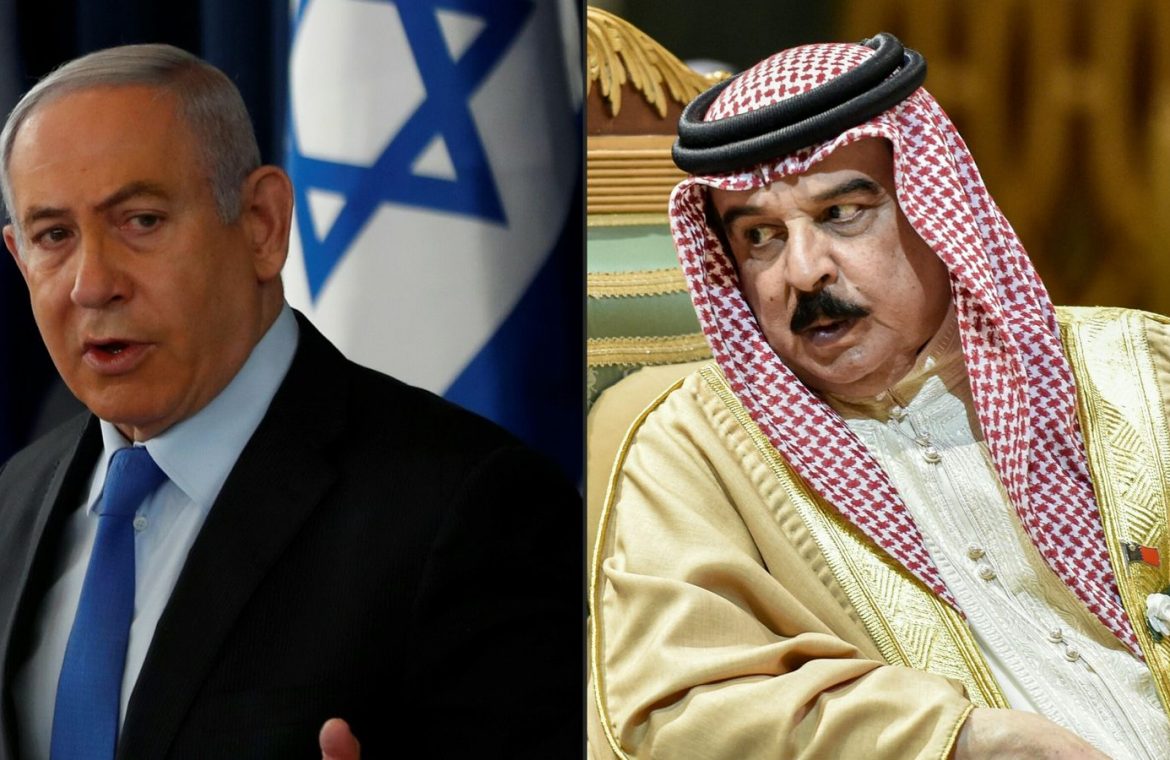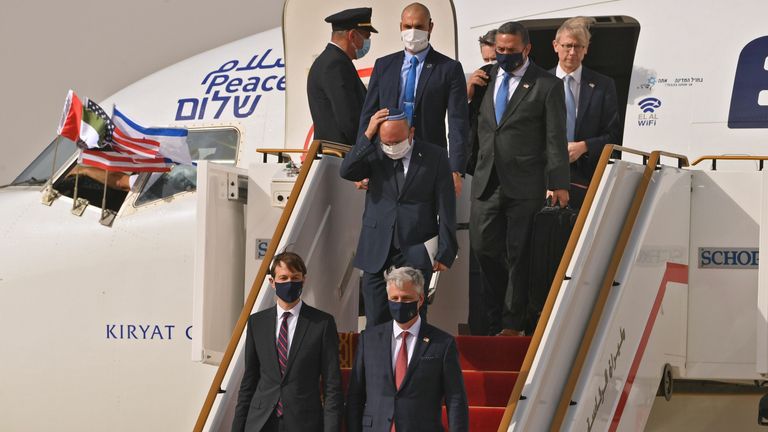Bahrain is preparing to normalize diplomatic relations with Israel in a historic move that marks the latest dramatic shift in the Middle East’s alliances.
Confirming the news, US President Donald Trump tweeted, “Another historic breakthrough today! Our great friends Israel and the Kingdom of Bahrain have agreed on a peace agreement – the second Arab country to make peace with Israel in 30 days!”
Israeli Prime Minister Benjamin Netanyahu said it is a “new era of peace,” adding: “We have invested in peace for many years and now peace will be invested in us.”
Netanyahu said he envisions “very large investments in the Israeli economy” and thanked “our friend President Trump” for his “important help.”
The Palestinian Authority said in a statement: “The Palestinian leadership strongly rejects and denounces the US-Bahraini-Israeli tripartite declaration … and considers it a betrayal … the (Israeli) occupation controls the Palestinian territories and annexed them militarily. Imposition.
It works diligently to Judaize the city of Jerusalem, to control Islamic and Christian holy sites, and to commit crimes against the Palestinian people.
Bahrain is following the example of its neighbor, the United Arab Emirates, which announced last month that it would normalize relations with the Jewish state, marking a major change in the region.
The UAE deal has been brokered by the Donald Trump administration, and a signing ceremony that will be attended by Netanyahu and the UAE foreign minister is scheduled to take place in Washington, DC, on Tuesday.
The crown prince of Bahrain, Salman bin Hamad Al Khalifa, is now expected to attend the ceremony as well.
Since Egypt and Jordan established diplomatic relations with Israel in 1979 and 1994 respectively, no Arab country has been prepared to recognize it.
The move of the United Arab Emirates, and Bahrain now, overturns a long-standing agreement between the Arab states to the effect that they will not establish any relations with Israel until the Israeli-Palestinian conflict is resolved through the establishment of a Palestinian state.
Last month, just weeks after the agreement was announced between them, Israel and the UAE celebrated their new relations with the UAE The first commercial flight between the two countries.
Bahrain said last week that it would allow flights between Israel and the UAE to use its airspace, following the same decision taken by Saudi Arabia.
The Trump administration is forging emerging historical alliances as evidence that the US president can forge a new course in the Middle East. These developments are sure to emerge as part of his re-election campaign.
These agreements are partly driven by the common enemy of the various countries, Iran.
The Trump administration is trying to persuade other Sunni Arab countries to follow the example of Bahrain and the UAE.
Countries including Kuwait and Saudi Arabia share America and Israel concerns about Iran, and what it considers its pernicious regional influence.
The Kingdom of Saudi Arabia has indicated that it is not yet ready to sign any agreement with Israel, citing the Palestinian cause.
The 2002 Arab Peace Initiative, led by the Kingdom of Saudi Arabia, made clear that any normalization of relations between Arab countries and Israel is conditional on a settlement with the Palestinians.
The initiative states that normalization will not come until after Israel fully withdraws from the occupied Palestinian territories and the formation of a Palestinian state with East Jerusalem as its capital.
In breach of this initiative, the UAE brokered its agreement with Israel after Netanyahu agreed to suspend his plans to annex large parts of the occupied West Bank.
The Palestinian Authority said in a statement: “The Palestinian leadership strongly rejects and denounces the US-Bahraini-Israeli tripartite declaration … and considers it a betrayal … the (Israeli) occupation controls the Palestinian lands and annexed them. Military power.”
While the new alliances will create important new economic, trade and tourism ties between the two former rivals, it is not yet clear how they can do more to find peace between Israel and the Palestinians – a conflict at the heart of the Middle East peace process.

“Food practitioner. Music junkie. Avid troublemaker. Hipster-friendly creator. Social media lover. Wannabe pop culture fanatic.”









